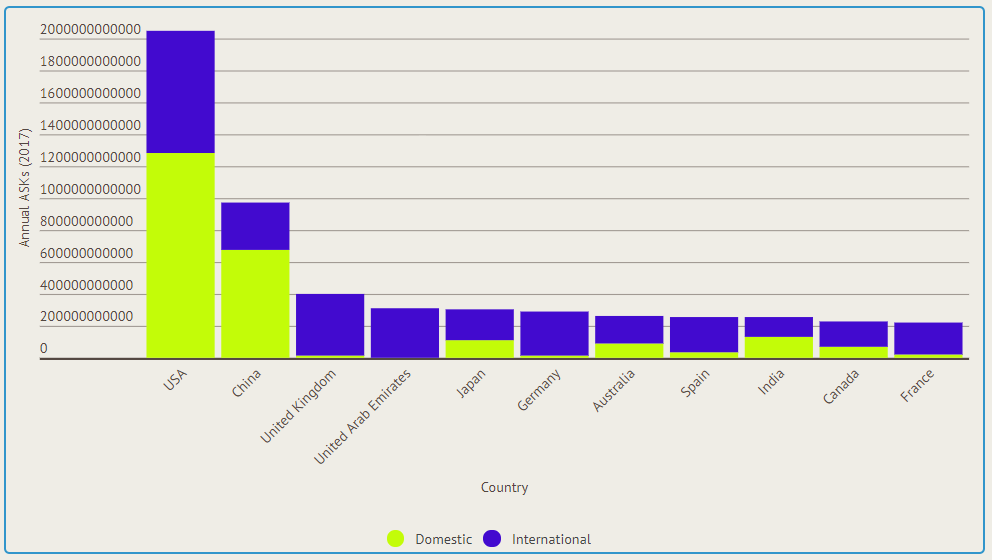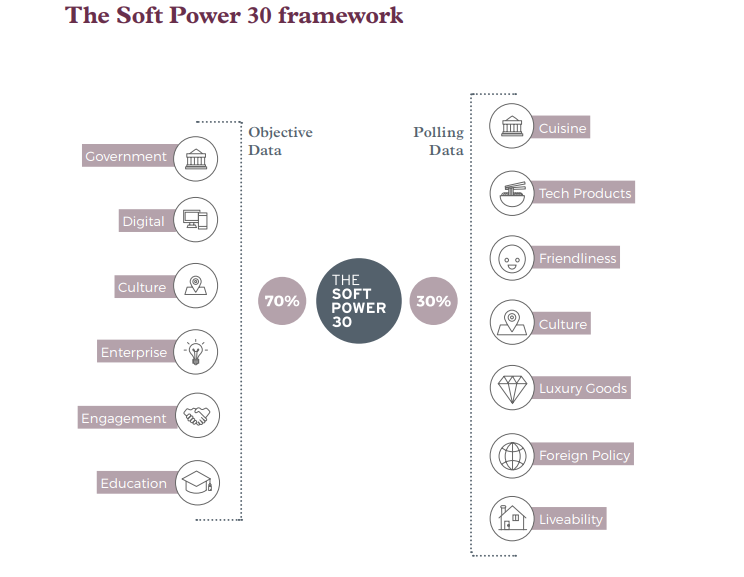The Soft Power 30 examines how much non-military global influence an individual country has and clearly illustrates that the election of Donald Trump in USA and the Brexit vote in the UK have shifted global perceptions of the countries, while elections in France have helped grow its own standing on the global stage.
"The result may come as a shock given the French landscape," says its author. Just a year ago President Hollande's popularity rating was at a record low, the nation was reeling from the devastating effects of a series of terror attacks, and the wave of far-right populism was gaining ground.
But, the election of Emmanuel Macron appear to have shifted opinions. "France's soft power has seen a boost with the defeat of the Front National and the election of it youngest-ever president, Emmanuel Macron," says the report.
Soft power, a term first coined in 1990 by the Havard University academic Joseph Nye, is the ability to harness international alliances and shape the preferences of others through a country's appeal and attraction rather than coercion (hard power).
Alongside the political changes, France's greatest strengths include its diplomatic network which position it as the most engaged state in the world and a member of more multilateral organisations than any other country. The nation's cultural assets also remain a major draw card for tourists and the threat of extremism sweeping across Europe (and impacting France directly) has not stopped international visitors from enjoying what France offers through its cuisine, museums and galleries, and scenery.
The report states soft power is crucial to the effective conduct of foreign policy. Developing and delivering effective foreign policy is certainly growing in complexity. Precipitated by the shift in power from states to networks, exacerbated by the rapid change in technology and compounded by fiscal constraints, governments and their diplomats are having to adapt to succeed in this challenging environment.
"More than ever, success depends on the ability to attract, build, and mobilise networks of actors to work collaboratively. Those countries with the ability to do so will be the ones driving change and shaping global events in the future," says the report.
European nations now hold three of the top five positions in the index - UK at two and Germany at four - while Switzerland has risen in the rankings to seventh. Sweden (ninth) and Netherlands (tenth) also make the top ten, with Denmark, Norway, Italy, Austria, Spain, Belgium and Finland holding the next seven spaces. This shows that in stark contrast to the political uncertainty in the UK, the remaining 27 members of the European Union now appear more confident and resolute in shifting towards greater integration and an ever closer union.
The Soft Power 30 index brings together polling surveys in 25 countries across the globe and digital data. Respondents were asked to rate countries based on seven different categories, comprising: favourability towards foreign countries; perceptions of cuisine of foreign countries; perceptions of how welcoming foreign countries are to tourists; perceptions of technology products of foreign countries; perceptions of luxury goods produced by foreign countries; trust in foreign countries' approach to global affairs; desire to visit foreign countries to live, work, or study; perceptions of foreign countries' contributions to global culture.
The UK maintained its 2016 ranking of second, albeit with a lower score than last year. Despite the looming Brexit negotiations, the UK's "objective soft power assets both state and privately owned - remain strong, says the report with the UK's strengths in the Engagement, Culture, Education, and Digital sub-indices. The data shows the UK's falling score appears to be driven by European respondents post the Brexit vote. "Outside of the EU, perceptions of the UK have not really changed," says the report.
The main story for Europe in this year's index is that stability is at a premium. Nations once overlooked for the more exciting option are now valued for their "strength and reliability," says the report. "We shouldn't underestimate the significance of Sweden and the Netherlands maintaining top ten positions for a third year. This kind of stability will be critical as European states look to strengthen collaboration and integration," it says.
While France rose from fifth to first, Australia, the only South Pacific country to make the list, fell the furthest among the top ten from sixth in eighth position. According to Portland Communications "last year, we were contemplating the possibility of Australia breaking into The Soft Power 30 top five. What a difference a year makes, with Australia moving the opposite direction. Australia's decline isn't necessarily down to a weaker showing - its overall score has remained steady and its objective assets are consistently strong. But with Japan and Switzerland both investing more resources into soft power and public diplomacy, Australia has been leapfrogged".
In aviation terms, from an available seat kilometre (ASK) perspective, France is no longer among the top ten aviation networks having been overtaken by Canada this year, based on published schedules. Analysis by The Blue Swan Daily of OAG data shows that despite ASKs forecast to increase 4.1% this year, France will slip to eleventh position in the ranking. Its growth rate is healthy but below the industry average of 6.3%. In the international market, France is ranked seventh in the world, but in terms of domestic markets it is ranked eighteenth.
CHART-Largest Global Aviation Economies (Annual ASKs 2017) Source: The Blue Swan Daily and OAG
Source: The Blue Swan Daily and OAG
